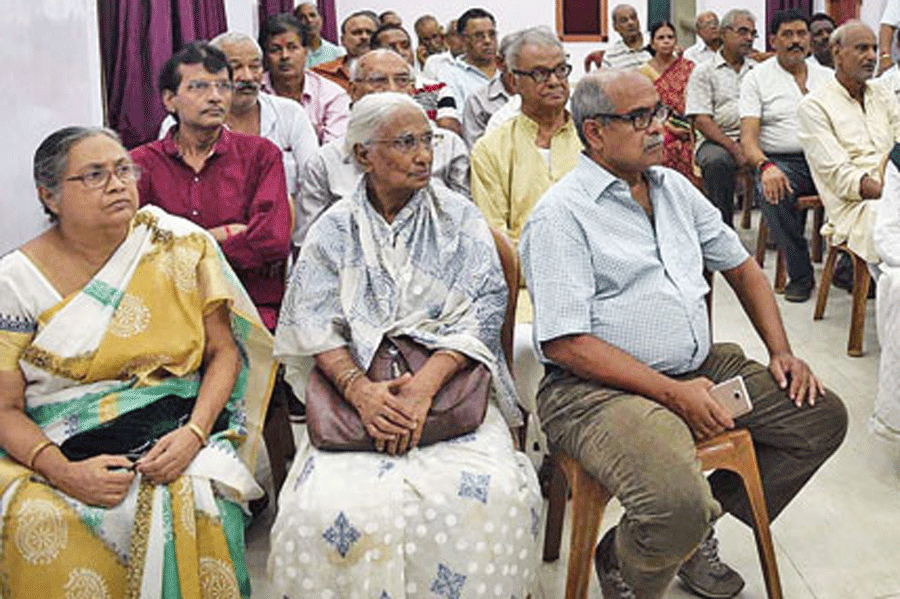A report published by the United Nations Population Fund (UNFPA) has projected that the share of the elderly in India’s population will double by 2050 and underlined the need for strengthening social security, including old-age pension, across a landscape where the majority of workers are employed in the informal sector devoid of such benefits.
The India Ageing Report 2023 said there were 149 million people aged 60 and above in the country in 2022, accounting for around 10.5 per cent of India’s population. By 2050, the number of the elderly will double to 347 million, or 20.8 per cent of the population, the report projected.
At 60 years, a person may expect to live another 18.3 years, which is higher in the case of females at 19 years compared to males at 17.5 years, the report said. Women in India are more likely to be dependent on their spouses for financial security and face greater adversities following the spouse’s death compared to men, according to the report.
The UNFPA is the United Nations’ sexual and reproductive health agency and works with more than 150 countries, according to its website.
Ageing is directly associated with economic dependency given the loss of income coupled with increased healthcare expenditure, the report said.
In India, the majority of workers are engaged in the informal sector without any social security like pension and health insurance. The report quoted the Longitudinal Ageing Survey of India 2017-18 to say that nearly 11 per cent of elderly males got pension from their previous work and 16.3 per cent received social pension. In case of females, 27.4 per cent were getting social pension while only 1.7 per cent were receiving pension from their previous work.
The UNFPA’s analysis of pension and income indicates that 18.7 per cent elderly people did not have any income. Seventeen states had a greater proportion of elderly people in this category than the national average — ranging from 19.3 per cent in Uttarakhand, 25.5 per cent in Bengal, 27.7 per cent in Uttar Pradesh, 38.9 per cent in Jammu and Kashmir, 42.2 per cent in Arunachal Pradesh and 42.4 per cent in Lakshadweep.
The Union government runs an umbrella National Social Assistance Programme for the elderly. The NSAP has three sub-schemes — the Indira Gandhi National Old Age Pension Scheme provides an amount of Rs 200 a month to below-poverty-line people aged between 60 and 79, the Indira Gandhi National Disability Pension Scheme pays an amount of Rs 300 a month to physically challenged people over 18 years of age, while the Indira Gandhi National Widow Pension Scheme offers an amount of Rs 300 a month to widows aged over 40.
After attaining the age of 80, beneficiaries across these categories receive Rs 500 per month.
In addition, elderly people over 65 and not receiving social pension are entitled to 10kg free grain a month.
Several elderly people were interviewed for the UNFPA report.
“Though the elderly continued to receive support from the state in terms of food rations and social pension without facing much difficulty, most of them stated that this was not sufficient to meet the challenges of the rising cost of living in the face of an economic downturn and hence, sought more in terms of
livelihood support,” the report said.
Nikhil Dey, national convenor of Pension Parishad, a civil society organisation, said the outfit had been demanding that the social pension be increased to half of the minimum wage as prescribed by the states.
“The monthly pension amounts of Rs 200 and Rs 300 from the central government scheme have remained stagnant since 2007. That the central government is giving 42 per cent dearness allowance on salary to its employees while not being bothered about the elderly is an indication of callousness and cruelty,” Dey said.
“The only thing that the elderly can do is to speak with their votes. Any government that mistreats the elderly will have to answer,” Dey said.
The UNFPA report stated that enrolment for social security schemes involves administrative procedures, including extensive documentation and physical presence at offices. The elderly are often unable to fulfil these requirements, moreover, awareness about the schemes is low, it added.










